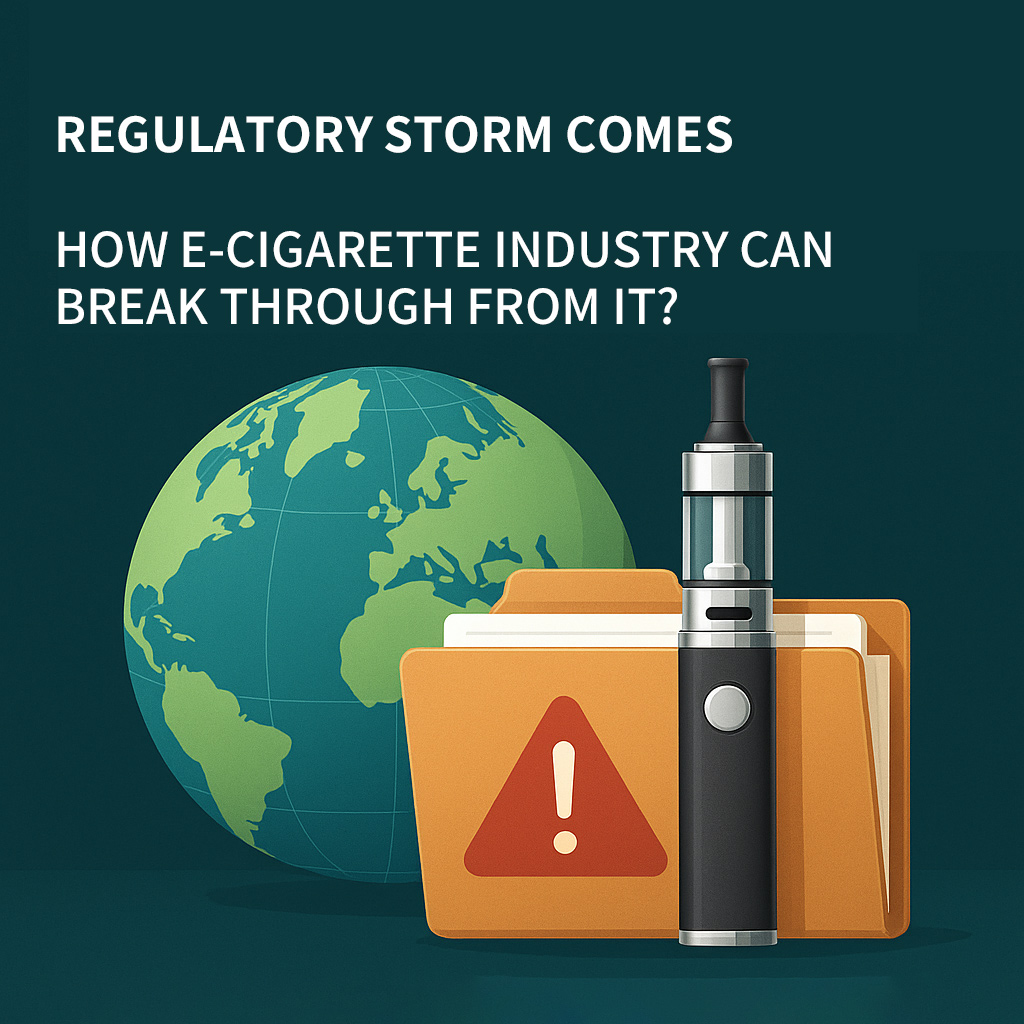As global regulatory scrutiny intensifies, the e-cigarette industry is entering a new era of strict compliance.
In April 2025, several countries introduced new rules covering product formulations, sales channels, and consumer access.
This monthly briefing provides a structured overview of global compliance trends to help brands navigate challenges and grow internationally.

According to data from China Customs:
Export value: Approximately USD 895 million, down 13.5% year-over-year
Export volume: About 20,468 tons, up 3.58% year-over-year
Although revenue declined, the increase in volume—particularly for lightweight products—suggests a shift in global demand patterns.
Major export markets remain concentrated in Europe and Southeast Asia, where Chinese-manufactured e-cigarette products continue to hold strong competitiveness.
As of April 1, 2025, Belgium enforces stricter tobacco laws:
Display Ban: Tobacco and e-cigarette products must not be visibly displayed; they must be kept out of sight.
Supermarket Sales Ban: Grocery stores over 400 square meters are prohibited from selling tobacco products. Only B2B distribution in non-consumer-accessible locations is permitted.
This regulation is expected to significantly impact offline retail channels.
Flavor Ban Reaffirmed
The Department of Justice confirmed that under Republic Act No. 11467, all flavored e-cigarettes are banned, despite the implementation of RA No. 11900 which had allowed broader sales.
Mandatory Registration for Online Sales
The Department of Trade and Industry issued Administrative Order No. 25-04, requiring consumers to register before purchasing e-cigarette products. E-commerce platforms must also restrict access for individuals under 18.
Cross-border sellers must strengthen identity verification and platform compliance mechanisms.
Newly effective regulations stipulate that only PMTA-approved e-cigarette products may be sold legally.
Companies must prepare toxicology data, ingredient disclosures, and usage documentation.
Stay alert to FDA warnings, approvals, and enforcement actions.
PMTA is both a passport and a firewall for Chinese e-cigarette brands seeking to enter or remain in the U.S. market.
| Substance Name | Toxicological Risk | Common Flavor Type |
|---|---|---|
| Acetaldehyde propylene glycol acetal | May release acetaldehyde (a CMR substance); flammable | Green fruit flavors |
| Acetaldehyde | Carcinogenic, highly irritating and mutagenic | Strawberry, peach, etc. |
| Birch tar | Contains polycyclic aromatic hydrocarbons (PAHs) | Tobacco flavors |
Recommendation: Formulation teams should strictly refer to EU ECHA standards to avoid regulatory violations.
As global regulation reshapes the e-cigarette landscape, brands must adapt through compliant formulations, controlled platforms, and robust registration strategies.
iPure will continue to provide monthly compliance briefings, international consulting, and PMTA registration support to help Chinese e-cigarette brands grow safely and sustainably overseas.